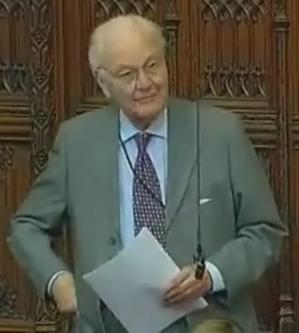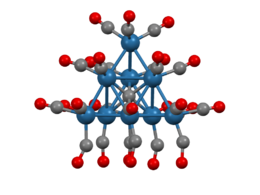Jack Lewis, Baron Lewis of Newnham facts for kids
Quick facts for kids
The Lord Lewis of Newnham
|
|
|---|---|
 |
|
| Born | 13 February 1928 |
| Died | 17 July 2014 (aged 86) |
| Nationality | British |
| Alma mater | University of London University of Nottingham |
| Awards |
|
| Scientific career | |
| Fields | Chemistry |
| Institutions | University of Sheffield Imperial College London University of Manchester University College London University of Cambridge |
| Doctoral students | Kevin Burgess |
Jack Lewis, Baron Lewis of Newnham (born 13 February 1928 – died 17 July 2014) was an important English chemist. He mostly studied inorganic chemistry, which is the study of chemicals that do not contain carbon-hydrogen bonds.
Contents
Early Life and Education
Jack Lewis grew up and went to Barrow Grammar School. He loved learning about chemistry. In 1949, he earned his first degree in chemistry from the University of London. After that, he continued his studies at the University of Nottingham, where he earned his Ph.D. This is a very high degree that shows someone is an expert in their field.
In 1951, Jack Lewis married Elfreida "Freddie" Lamb. They had a son and a daughter together.
A Career in Chemistry
Jack Lewis had a long and successful career teaching and researching chemistry. In 1953, he started as a lecturer at the University of Sheffield. A few years later, in 1956, he moved to Imperial College London to teach there.
He became a full Professor of Chemistry at several famous universities:
- The University of Manchester (from 1961 to 1967)
- University College London (from 1967 to 1970)
- The University of Cambridge (from 1970 to 1995)
From 1977 to 2001, he was also the first leader, called a Warden, of Robinson College. This was one of the newest colleges at the University of Cambridge.
Awards and Honors
Jack Lewis received many important awards for his work in chemistry. In 1973, he became a Fellow of the Royal Society (FRS). This is a very special honor for scientists in the United Kingdom.
He also received several medals from the Royal Society:
- The Davy Medal in 1985
- The Royal Medal in 2004
He was also an Honorary Fellow of the Royal Society of Chemistry and was its president from 1986 to 1988. He was also a member of other important science groups in America.
Public Service
Jack Lewis was recognized for his contributions to science and public life. In 1982, he was made a knight, which means he was given the title "Sir." Later, in 1989, he was given the title Baron Lewis of Newnham. This made him a life peer, which meant he could be a member of the House of Lords. The House of Lords is part of the UK Parliament.
As a member of the House of Lords, he worked on committees that focused on science and technology. He also advised groups that supported science and engineering.
Scientific Discoveries
Early in his career, Jack Lewis studied how metal compounds behave with magnets. He became very well known for his work on something called metal carbonyl clusters. These are special groups of metal atoms joined together with carbon monoxide.
Working with his friend and colleague Brian F. G. Johnson, his research team discovered many new and unusual chemical compounds. One of their amazing achievements was creating a super tetrahedron called [Os10C(CO)24]2−. This was a very complex and important discovery in chemistry.
His Legacy
When Jack Lewis passed away, Robinson College, where he had been the first Warden, lowered its flag to half-mast to show respect. A special service was held in his memory at the college chapel.
A staircase in the chapel was named in his honor, with words that say "his wisdom shaped this college." People also donated money in his memory to create the "Lewis Research Studentship in Chemistry." This helps students study chemistry at Robinson College, continuing his love for science.
 | Aaron Henry |
 | T. R. M. Howard |
 | Jesse Jackson |


